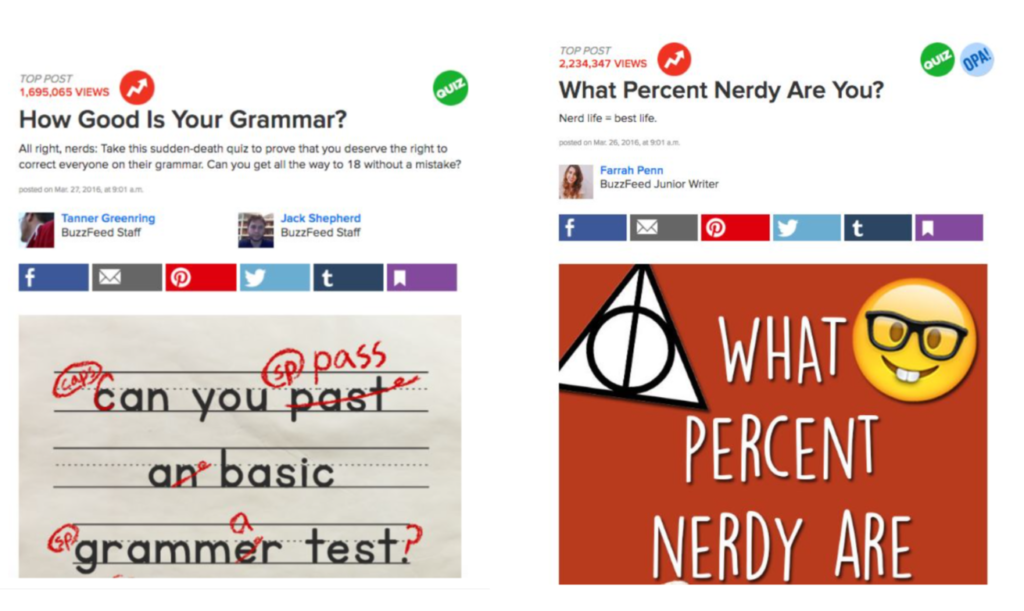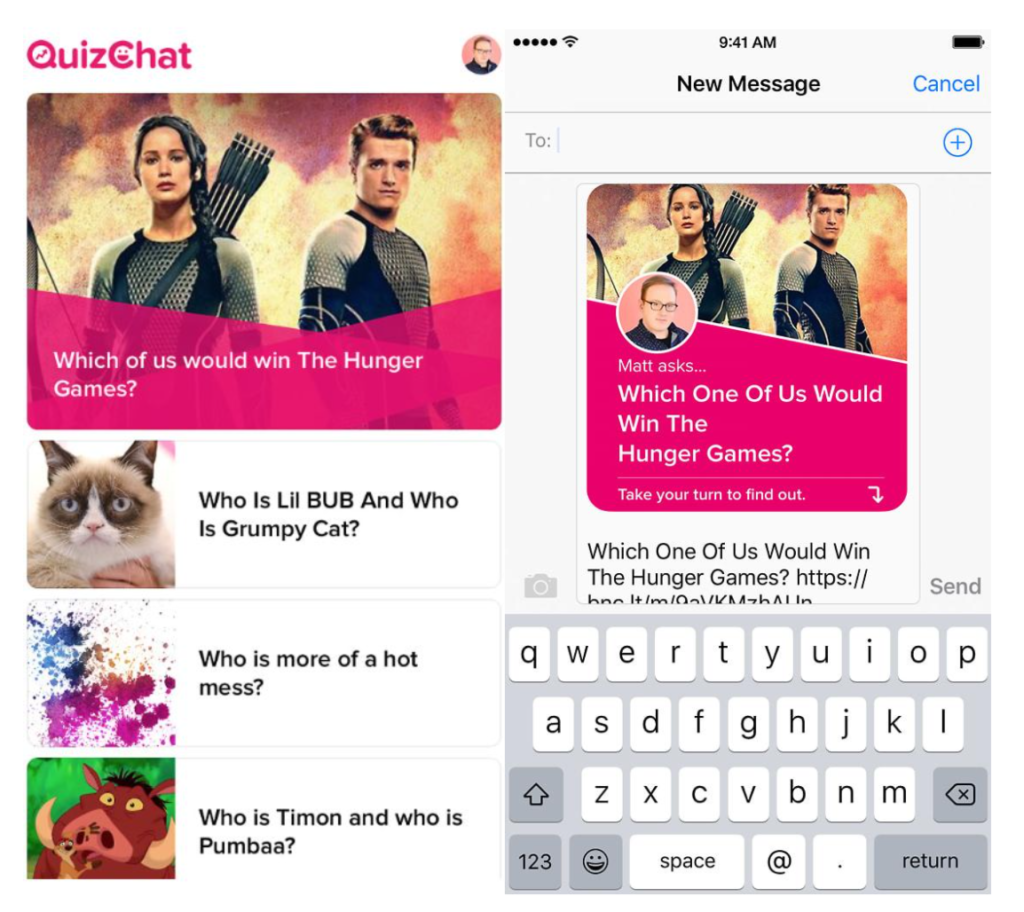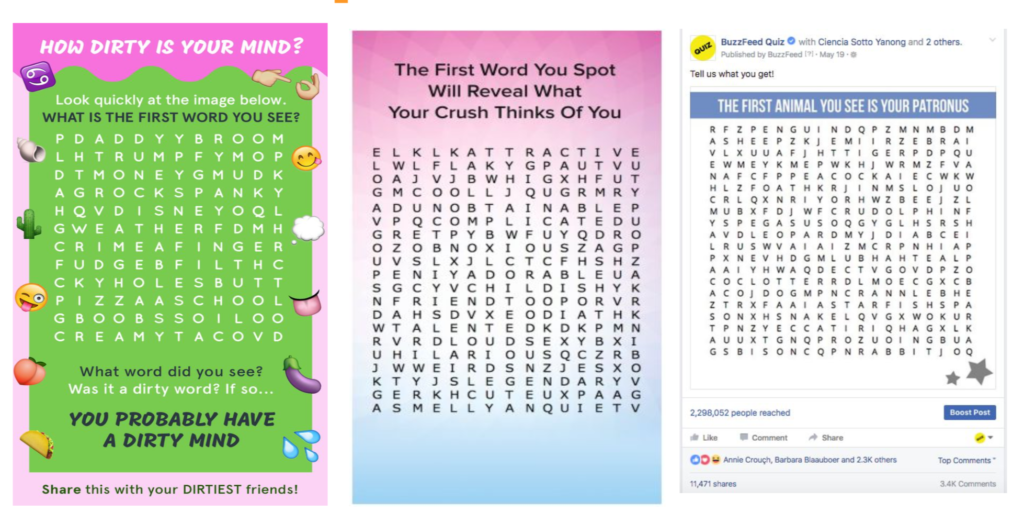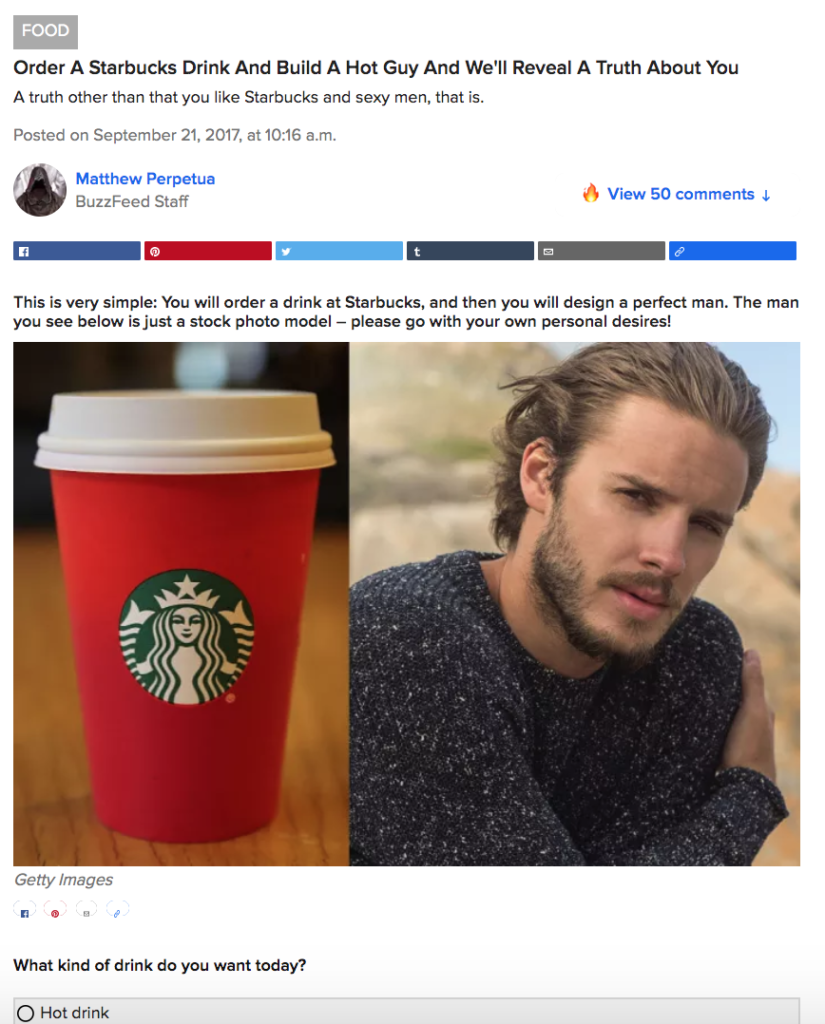Matthew Perpetua | Portfolio
My ideal position would be highly collaborative and involve working with people with different disciplines and skill sets. I love working for an audience, and care a lot about understanding them, entertaining them, figuring out what they want and need, and finding ways to expand existing audiences by diversifying content.
I am looking for work that allows me to continue on with the fairly complex skill set I developed at BuzzFeed. I was stationed in editorial as Director of Quizzes and Games but worked with teams in product, engineering, data, marketing, creative/advertising, video, and social media – quizzes touched almost every part of the company, so I often worked as an internal consultant. You can find a sampling of the content I made for BuzzFeed here. This is a breakdown of my work at BuzzFeed that was not forward-facing.
• I spent a lot of my time at BuzzFeed collaborating with the product team in developing quiz-building tools and new quiz formats. Formats introduced during my tenure include polls, checklist quizzes, percentage quizzes, weighted quizzes, various forms of choose-your-own-adventure games, budgeting quizzes, sliding scale quizzes, tap-on-image visual quiz formats, and “sudden death” trivia games.


• I also worked closely with the product team focused on the primary BuzzFeed CMS in refining the quiz building tools to add in few features and make the process of quiz making faster and more intuitive. This streamlining of the quiz tools was crucial when we gave community writers access to the quiz builders – quiz-making quickly became the most popular form of user generated content within months because we had made the process so simple and painless.
• This continuous refinement extended to the presentation of quizzes on the user end, and led to small innovations that made it so the process of taking quizzes was smoother and faster. We also improved user experience in ways that directly led to overall increases in quizzes being taken, such as the “infinite quiz” model which served up a new quiz for the reader after they’d completed one to encourage binge-quizzing.
• I also pushed the product teams to give writers access to more data on their quizzes so they could get better insights into which quiz results shared the best, be able to adjust quizzes based on user engagement in order to improve sharing and traffic performance, and ways of analyzing user answers that could give us insight into audience taste that could inspire other content.

• I served as the editorial lead on the product team that conceptualized and created the BuzzFeed QuizChat app, which was designed to add a one-to-one social element to the classic BuzzFeed quiz format. The app, performed well, particularly in regions where Facebook Messenger was widely used, but was eventually scrapped in favor of further developing the main BuzzFeed app, which for about 80% of the audience was already mainly used for taking quizzes.
• I also worked with other editorial and creative teams on experimenting in other formats. I collaborated with the video department on adapting quiz ideas to video formats and worked with social teams in exploring the possibilities of creating quizzes that could exist natively on Snapchat and Facebook. My idea to adapt the classic “word jumble” format to Snapchat was particularly successful and led to some of BuzzFeed’s most shared Snaps during the peak of the app’s popularity.

• I worked with marketing teams in adapting the BuzzFeed Quiz brand to licensed board games and experiments with writing quiz scrips for interactive bots developed by Amazon Alexa, Google Home, and Microsoft Zo.
• I led many editorial initiatives around developing new types of content, as well as sprints to boost quiz production. I analyzed traffic and audience data to develop editorial strategy, and found ways for writers across many editorial offices to brainstorm and collaborate, both in IRL summits and in virtual spaces like Slack.
• I personally wrote thousands of quizzes, with over a hundred quizzes with over a million views. I created several quiz frames that became widely used by both editorial and community writers, and experimented with quiz tools to find new ways of using them that were not necessarily intended by the builders.

For example, in this quiz I used an experimental secondary quiz builder that included weighted scores and rigging so that the entire first section of the quiz was essentially an un-scored placebo, and determined results by how users answered one or two particular questions. The audience had no idea, but this method allowed for a level of “accuracy” that excited most of them. It was a hit, as were all subsequent iterations on the theme.
• Outside of BuzzFeed I’ve worked as a consultant for brands who are developing quiz content and quiz builders for a variety of audiences, including games for children, quizzes for fans of YA literature, and mental health tests for young men in Bangladesh who are at risk of political radicalization.

 Support Me on Ko-fi
Support Me on Ko-fi






